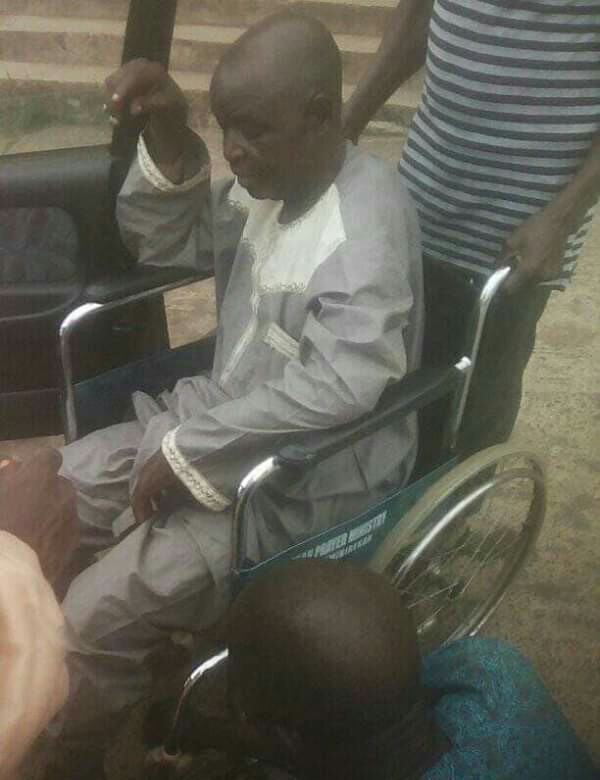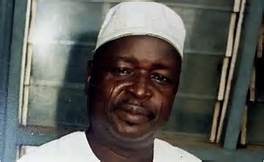Akeem Lasisi
Death has dug another hole difficult to fill in the Yoruba theatre and movie industry as veteran actor and chanter, Toyosi Arigbabuwo, is dead. Arigbabuwo took a bow on Monday, as announced by one of his contemporaries, Musiliu Dasofunjo.
While many associates and fans of the deceased have started mourning him, Dasofunsjo will particularly for some time, grapple with the memory he shared with Arigbabuwo when they held viewers spell-bound in the 1980s, dramatising stories of the lives and times of Yoruba gods such as Ogun, Esu and Orunmila. That was in a series that ran for long on NTA Ibadan. It was the same time the likes of Yemi Elebuibon’s ‘Ifa Olokun’ and Jesters Internationals/Ola Omonitan’s ‘Awada Kerikeri’ were also viewers’ delight.
One phenomenon that, however, distinguished Arigbabuwo’s career is that he was also a great chanter. As a result, he featured on radio and TV as a poet, in an era that Lakin Ladebo, Adebayo Faleti, Alabi Ogundepo, among others, also regularly presented ewi (poetry) of different textures on air. Yet, Arigbabuwo was not just a poet: he was also a male poet who chanted a women’s poetry.
While his contemporaries either did modern poetry (ewi) and some went for the traditional or religious (Elebuibon is renowned with Ifa’s chant, Iyere Ifa, for instance), Arigbabuwo invested his talent in what was very close to Ekun Iyawo, the bridal poetry. Because it was/is the form the bride performs on the eve of her marriage, Ekun Iyawo is essentially a gender poetry. But there was Arigbabuwo doing the chant in a compelling and sustained way.
Stakeholders will be more pained that the actor is departing at a time the industry just lost some other veterans like him. These include Samuel Akinpelu (Alabi Yellow) and Fasasi Olabankewin (Dagunro) who were strong Thespians too. Although details of what killed Aregbabuwo are not yet clear, it may not be unconnected with the diabetes he was said to have been suffering from since last year. In what suggested that much of what Arigbabuwo made was fame and not money, he had problems raising the N300,000 that he was said to have needed in the hospital.

Reacting to Arigbabuwo’s passage, practitioners, including those on the Ibadan Film Circle (IFC), have been celebrating and sharing their experiences with him. While a producer, Tunde Olaoye, described Arigbabuwo as a mentor and a ‘versatile and total artist’, scholar and Thespian/costumier, Toyin Bifarin-Ogundeji, recalled that he was scheduled for a programme at the Obafemi Awollowo University, Ile-Ife.
“He was to come to Ife to handle a master class on Agbeko design. May he rest well,” she noted.
Another versatile act, Ropo Ewenla, has more than one reason to scream when he heard the story of Arigbabuwo’s exit. He planned to have an interview with him on a book he and another artist are working on. Ewenla, who is playing a role in Kunle Afolayan’s ‘Citation’, lamented in Yoruba: “Sangba fo (The cornerstone is broken). Eyin ka, ile erin wo (The foundation of laughter is gone with the collapse of the teeth.) Ketekete ku, iso pin (The donkey’s death has ended a farting era).”
Another old hand who worked with Arigbabuwo at NTA, Ibadan, Dele Morakinyo, recalled that he was a resourceful an d respectful person.
On his part, award-winning director, Niji Akanni, noted: “And so, death plucks another of the brightest of Yoruba cinema, Alhaji Toyosi Arigbabuwo, veteran theatre and film actor and an exemplary gentleman. I had the honour of working with this consummate craftsman and a director’s delight twice; once on the set of ‘Aramotu ‘(2009) and in ‘Heroes & Zeros’ (2011). On both sets, he gave from his immense talents much more than the scripts asked for. But, most importantly, his courteous, respectful and friendly disposition was an unforgettable lesson in that ancient Yoruba ethos of Omoluwabi. . . Go well, Arigbabuwo. You were a great talent and a beautiful person.”



